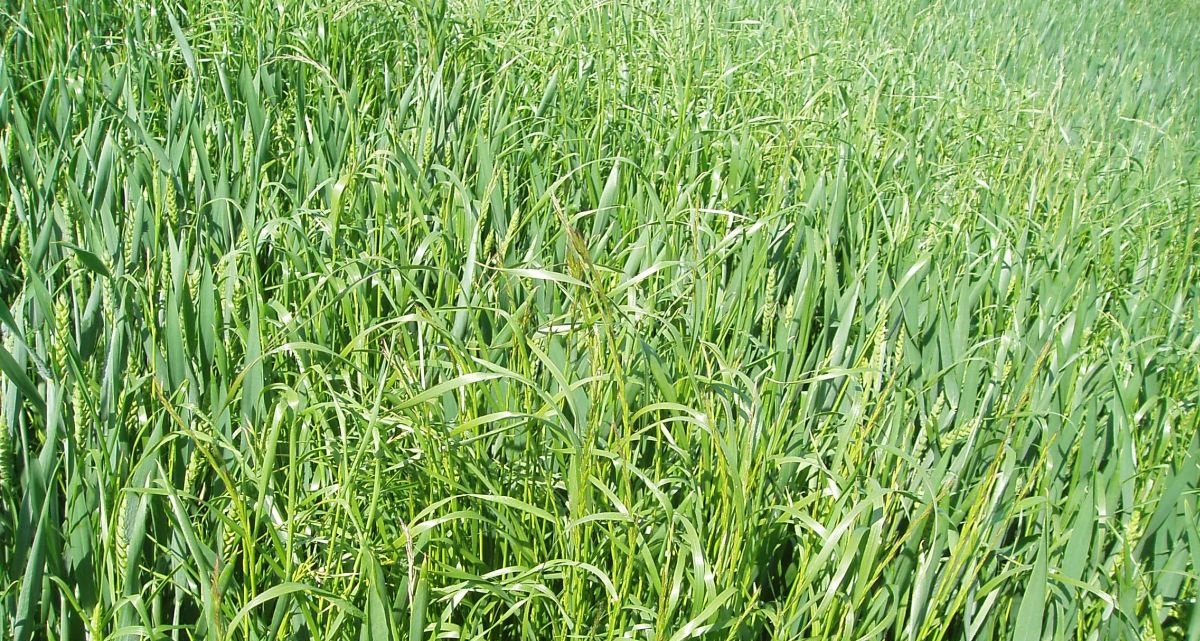
Two new high yielding perennial ryegrass varieties will be available to UK farmers this spring thanks to a long-term partnership between Barenbrug, the Agri-Food and Biosciences Institute (AFBI) and the Department of Agriculture and Rural Development (DARD) in Northern Ireland.
Fintona is a new intermediate tetraploid perennial produced from a cross between Malone and Dunluce – two existing intermediate tetraploid varieties. A valuable grass for farms that want to maximise silage yield on a two-cut system, Fintona combines favourable attributes of both parents and sets a new standard in forage production for intermediate tetraploid perennials in UK and Republic of Ireland Recommended List trials.
Results show that Fintona has a better total silage yield than other AFBI varieties that are already performing well in grazing and silage mixtures. (See supporting diagram, which shows Fintona has improved 1st and 2nd cut silage yields over Dunluce (listed 2005), Malone (2006) and Seagoe (2011)).
Moira is an intermediate diploid perennial ryegrass that provides excellent spring growth. Trials show that Moira delivers total silage yields that are 8% higher than Spelga, the variety it was bred as a direct replacement for. The parentage of Moira includes Dutch grass genetics, acquired through Barenbrug breeding stations, which are located worldwide.
Moira and Fintona have taken almost 15 years to develop as part of a specialist grass-breeding programme at AFBI Loughgall in County Armagh. The ten-hectare site – where Barenbrug has been a commercial partner since the 1990s – was established in the 1950s to produce grass varieties optimised for the UK farming sector.
The selection procedures used by AFBI in breeding Moira and Fintona were developed in close cooperation with grass experts from Barenbrug’s international network of breeding stations. This allowed access to novel breeding materials with favourable attributes such as high spring growth, disease resistance and winter hardiness.
To support the trials at Loughgall, the selection and evaluation process was carried out at Barenbrug sites in England, France and the Netherlands, where disease and winter damage is usually more extreme than in Northern Ireland. This data was invaluable in identifying the best parental stocks.
Mhairi Dawson, R&D Manager for Barenbrug UK, said: “Grass is one of the most important on-farm crops. So it’s important that varieties are bred carefully to maximise productivity in the places where they’ll ultimately be grown. That’s the purpose of our work at Loughgall, where we are helping to bring new varieties to market that will meet the needs of UK farmers.
From start to finish the process of developing a new grass variety is incredibly long and represents a significant investment by all parties involved. Offering excellent performance throughout the United Kingdom, we anticipate strong commercial demand for Moira and Fintona and are delighted to bring them to market in partnership with AFBI.”
Over the years, work undertaken at Loughgall by AFBI with partners such as Barenbrug has had a huge impact on the productivity of UK grassland. Analysis of data from trials conducted at AFBI, and maintained under the same management over 30 years, has shown a gradual increase in production equivalent to about 0.4% per annum. That means varieties, such as Moira and Fintona, which are being commercialised now, are at least 24% higher yielding than the best available varieties six decades ago.
The launch of Moira and Fintona follows the successful commercialisation of Clanrye, Seagoe and Glenariff, which have been established on hundreds of UK farms and have created excellent swards. AFBI has further new varieties in the pipeline, which are being multiplied by Barenbrug UK at present. These include new intermediate tetraploids Ramore and Caledon as well as a new late diploid, Glenarm. At an earlier stage of development are Glasker, Carland and Gosford.
